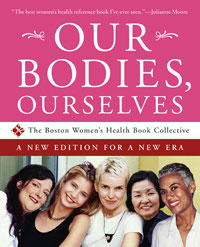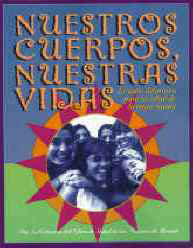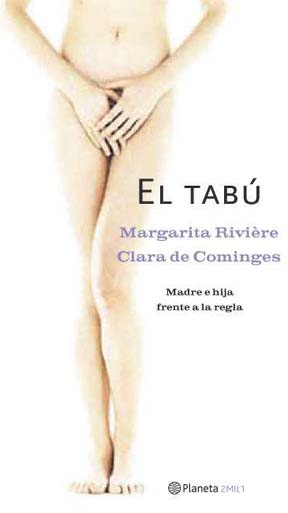CONTRIBUTE to Humor,
Words and expressions about
menstruation and Would
you stop menstruating if you could?
Some MUM site links: homepage
| MUM address & What does
MUM
mean? | e-mail
the museum | privacy on
this site | who runs this
museum?? |
Amazing women! | the art of menstruation | artists (non-menstrual) | asbestos | belts | bidets
| founder bio | Bly, Nellie | MUM board | books:
menstruation and menopause (and reviews) | cats
| company
booklets for girls (mostly) directory | contraception and religion | costumes | menstrual cups | cup
usage | dispensers | douches, pain, sprays | essay directory | extraction | facts-of-life booklets for
girls | famous women in
menstrual hygiene ads | FAQ
| founder/director biography | gynecological topics by Dr.
Soucasaux | humor | huts | links
| masturbation | media coverage of MUM | menarche booklets for girls
and parents | miscellaneous
| museum future | Norwegian menstruation exhibit |
odor | olor
| pad directory | patent medicine | poetry directory | products, current | puberty booklets for girls and
parents | religion | Religión y menstruación | your
remedies for menstrual
discomfort | menstrual products safety
| science | Seguridad de productos para la
menstruación | shame | slapping, menstrual | sponges | synchrony | tampon directory | early tampons | teen ads directory | tour of the former museum (video) | underpants & panties directory
| videos, films directory |
Words and expressions about menstruation | Would you stop menstruating if you could? | What did women
do about menstruation in the
past? | washable pads
Leer la versión en español de los siguientes temas: Anticoncepción y religión, Breve reseña - Olor - Religión y menstruación - Seguridad de productos para la menstruación.


Continued to next earlier News & Notes
NEW this month (news & letters BELOW, 15 Feb. 2006):
How Modess and the
CLASSIEST sanitary napkin ads began
Determine what kind of brain
you have! (The test helps explain why I started this
museum.)
Too much hair: Hypertrichosis,
Hirsutism and Androgenic Manifestations in Women
Religión y menstruación (Religion
and
Menstruation page in Spanish; English
version)
Douching with Lysol and Zonite: DON'T!
See new Stop menstruation mail and new words,
below.
Humor
Would you stop menstruating if you could? New contributions
Words and expressions about menstruation: New contributions: Australia:
Bunnies, Bunny time, CSI: Uterus, I need to visit the
mud hut, Menstruama, Raspberry dip, Silicon pony,
Tante Rose; Canada: Charlie Brown is visiting; France: Tante Rose; Italy: My uncle from the States
has arrived
Do you have a woman's brain?
Simon Baron-Cohen, of the Autism Research Centre at Cambridge University, has a theory about "male" brains and "female" brains - and autism.
He thinks that men generally have a mind that is more likely to theorize and to look for patterns in the world. The average woman is stronger in empathy and interpersonal relationships. The brains of women who become scientists tilt toward the male pattern. And men can have a stronger interpersonal leaning than an interest in systematizing. But on average the sexes adhere more or less to their strengths.
Baron-Cohen believes autism is on the increase because today "male-brain" men and "male-brain" women are more likely to marry and have children than in the past since it's more acceptable today for women to enter previously male-dominated areas like mathematics and science - and people want companionship. Marriage between two "male-brains" tends to produce more children with extreme male brains, he writes. And he believes that's why autism has greatly increased today since he believes autism is an extreme form of the male brain.
Two tests test your tilt at
http://www.guardian.co.uk/life/news/page/0,12983,937443,00.html
which comes with an explanation of his theory.
My score was 42 for empathy, exactly average for men; as expected, the average woman scores better.
But for the systematizing test - the male brain - my score, 49, was way higher than the average male's (30) and way, way higher than the average woman's (I think 24). As a matter of fact it looks as if most autistic and Asperger-syndrome people scored even BELOW me if I understand his explanation. (In seventh grade classmates dubbed one of my friends and me The Human Dictionary and The Human Encyclopedia - I forget who was which.) I guess my empathy result saved me.
Which helps explain this museum. All my life I've collected and ordered things - as a kid, rocks, fossils, stamps, sea shells, words and languages - common male-brain excitements. Sitting in one of my bookcases, next to an 1846 edition of Darwin's Voyage of the Beagle (bought for five bucks when I was in high school - can you believe?), is a book in Japanese systematizing the sea shells of the Ryukyu Islands, where I lived with my family as a teenager. One Christmas my father commissioned an Okinawan cabinetmaker to construct a beautiful wooden cabinet to house my collection of shells and fossil crystallized brachiopods I had chipped out of Okinawan hills (and identified from the book "Invertebrate Paleontology," shipped by boat from Cambridge University Press). Decades later, as a magazine art director in Germany, I bought a catalog of the world's Murex shells from Stanford, showing that sea shells can fascinate long after the collecting stops.
And on the same bookshelf is a reprint of Dreyer's "New General Catalog of Nebulae and Clusters of Stars," with the Index Catalog and Second Index Catalog - the famous source of the NGC numbers in astronomy that I ordered from the Royal Astronomical Society, in England, as a 14-year-old. Here, together with a massive star atlas I owned, I had the universe lined up and captured in my hands!
A year or two later I started staining slides and photographing protozoa and bacteria through a microscope my father brought me from one of his trips to Japan. And for that I bought Kudo's still-used "Protozoology," which contained the world of protozoa.
It's no surprise that I majored in philosophy at Johns Hopkins, philosophy collecting ideas and trying to make sense of the world mostly through - what else? - systemization.
So I thought it would be fun and useful to bring together as much historical information as I could about menstruation in the form of a museum, which actually operated in my basement for four years (here) before it overwhelmed me. Now it lives on in the pages you're reading and I hope one day will outlive me in another physical museum - for you.
Letters to your MUM
See a new tampon dispenser
Hi, Mr. Finley,
My name is Sean Gardner and I am building a Web page for a new TAMPON DISPENSER built here in the United States. I was wondering if you would consider placing a link to this product on your page. And if you don't mind, we will be placing a link to your page and to various other tampon related sites on ours.
The address is http://www.tambox.biz I hope you will consider doing this, and I look forward to hearing your response.
Thank you,
Sean
Stopping menstruation the chi gung way
An e-mailer wrote in a previous news,
Have you much information about the "Cutting off the red dragon" chi gung practice of period elimination? [None at all!] This may be what some of the women were looking for: a non-artificial-drug method of reducing periods. I have heard the practice described in vague terms, such as that it involved massage of the nipples, and this seems as though it would be an effective process for some, as certain women can induce lactation by nipple stimulation. [And lactation - producing milk from the breasts - usually stops menstruation.]'
Last month someone found the e-mail address - http://www.chigung.com - wrote the site and received this response:
Hi,
The technique (or one close to it with same effects) is fully described in "The Tao of Sexology" book. The full book reference is mentioned in our link page. Though it is a more fire than water method, there are no negative aspects for women practicing it.
The technique for controlling a woman's cycle is far from being 100 percent successful, though, even when practicing regularly and correctly. Therefore I would advise you to not use it as the sole contraception method.
Anti-abortion? Pro-abortion? Controversial?
Dear Mr. Finley,
Do you have a section at your Web site for social controversies related to menstruation? I have a new Web site that underscores one in particular.
http://www.thepopelied.com [I could not access the site recently.]
It is kind of the papal equivalent of "your mom lied" about why girls shouldn't play sports. (Before advanced feminine hygiene protection, moms were afraid about the implication sports would have for menstruation.) In this case, it has to do with the implication the baptism of miscarriages has for menstruation. (A very early miscarriage would be hard to distinguish from ordinary menstruation.)
I realize that since you deal with a lot of sensitive females you might have trouble posting a link to my website (which I invite you to do). For, unfortunately, both those who oppose and support abortion may be offended. That leaves only a little space between a rock and a hard place! More unfortunately, some may consider the site to be "anti-Catholic", which it is not. Instead, it is a diplomatic and scholarly effort.
I would also like to know if there is a link [here] to a picture of the clunky pads women used to wear in the 1960s and 70s, the kind suspended from elastic straps. Many girls today are unaware of this kind of primitive pad, and it helps them to better understand the predicament of why women didn't used to play sports as much. Otherwise, they presume it was some sort of chauvinism than precluded their sports-playing. Instead, it was menstrual anxiety!
Cal
Aw, schucks, just doing my job
I love your write-up about Lily the Pink, having just listened to the Top Twenty Hits from the year of the 60's hit - I thought I would look it up on the Web, to see exactly what year it was. I am guessing - but I think it is around 1967/68.
I just love your write-up about the song and all the filling in of extra information. You have done a BRILLIANT Job. My Praises and Accolades Go Out To You - WELL DONE.
Kindest Regards and Very Best Wishes
****



